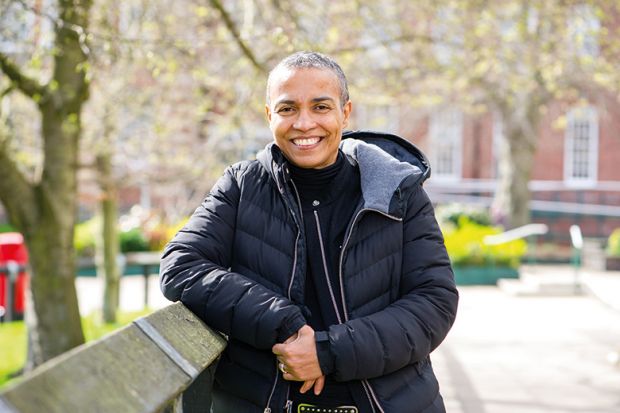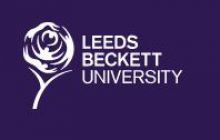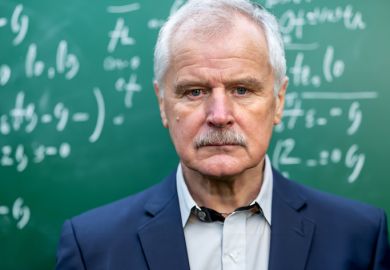Shirley Tate is a cultural sociologist and researcher in the areas of institutional racism and black identity. Previously an associate professor in race and culture at the University of Leeds, she took up a new role as professor of race and education – the first of its kind in the UK – at Leeds Beckett University in April.
Where and when were you born?
In Spanish Town, Saint Catherine, Jamaica, in March 1956.
How has this shaped you?
I was brought up in Sligoville, which was the first free village in Jamaica set up after the enslaved population were granted full freedom in 1838. Being a black African-descent Jamaican is still pivotal to me in terms of how I identify as a person. I was very fortunate to be brought up there at a time of independence, Black Power, a resurgence of Rastafarianism and, with it, Garveyism. It was during this time that my cousin gave me a copy of Frantz Fanon’s Black Skin, White Masks. I always look back at this as a really important moment in my coming to awareness as black and Caribbean because it helped me to understand how colonialism continued to work in the Western hemisphere for black people, people of colour and white people. Jamaica became independent from the British Empire in 1962, so I was British for five and a half years, then became Jamaican and then became a naturalised British citizen in the 1980s. I left Jamaica in 1975 for the UK, which was a very difficult transition. For the first time, I really realised what it meant to be a black person in a white country. I was really taken aback the first time that I was asked, by a seven-year-old mixed-race girl, whether I was “half or full”, meaning was I mixed race or not. For her, that was an important way to judge whether she had a connection with me. I was also asked by my boss, in the first job I had in the UK, where I had learned to speak and write such good English and was “complimented” by being told that I didn’t sound at all Jamaican. I cling to my Jamaican accent with a vengeance, so I didn’t feel the compliment.
Is this new professorship a positive step forwards or an indictment that we’re only seeing the first of its kind in 2017?
Both. Why it took this long to establish a professorship in this area is important, especially when we know that racism has not vanished, is incapable of doing so and that race still impacts [on] everyone’s lives because we are all racialised subjects. Attached to this is the question of why some universities do not see race and racism as issues to be addressed – and, in fact, are removing them from the curriculum and strategic development considerations – while other [institutions] so very clearly do.
You are an expert in institutional racism. Does the global academy have a problem with race?
Yes. The academy is institutionally racist, as colleagues in the US, the UK, Brazil, South Africa, France and Germany, for example, have said. For instance: [a] white, Eurocentric curriculum and knowledge base; difficulty of access for students and academics; lack of promotion; [and] racist micro-aggressions and other forms of racism not being taken seriously by institutions. That’s besides racialised others being perpetually marginal, no matter what their standing may be in the wider academy. My colleague, Deborah Gabriel, and I have just co-edited a book dealing with black women and women of colour’s experiences in the UK academy that shows that the towers remain very ivory, in whatever discipline and status you occupy.
Have you experienced racism in the academy?
Yes. It forms the basis of my writing on the micro-practices of institutional racism. This is part of everyday life for black academics and is the case regardless of status.
What keeps you awake at night?
I am an insomniac. I try not to have anything keep me up at night but worry and unhappiness do sometimes do that. Apart from big global problems that should keep us all awake, what keeps me up is if I hurt people, make a mistake that I can’t fix, or have ideas that just won’t let my brain switch off.
What’s your biggest regret?
I don’t tend to think about regrets but about future possibilities. I think that is an important way to think when you have more of your life behind you than ahead of you. Although one regret is that I could not be there when my father and brother died owing to the fact that they were in Jamaica.
What kind of undergraduate were you?
I did my undergraduate degree in the UK, so I had a very steep learning curve in terms of understanding what was expected of an essay, what critiquing something was and dealing with a different system in general. I worked extremely hard because, coming from Jamaica, I felt that success in education was important and that it was achievable [in the UK]. I read everything that I could and was really fortunate to have Raminder Singh, Ranjit Aurora and Barre Fitzpatrick as part of my teaching team and also as my early mentors. They kept me going when I thought that I could not do it any more because I just could not understand.
If you were higher education minister for a day, what would you do?
End neoliberal marketisation, end global ranking systems for universities, establish free university education and remove the hold the Russell Group has on PhD funding.
What brings you comfort?
Jamaican food, family, close friends, the gym and early nights.
john.elmes@timeshighereducation.com
Appointments
Colin Bailey has been appointed president and principal of Queen Mary University of London. Professor Bailey, currently deputy president and deputy vice-chancellor of the University of Manchester, will take up his position in September. He began his career as an apprentice draughtsman before studying for a degree and doctorate at the University of Sheffield. He joined Manchester in 2002 as professor of structural engineering and served in several senior roles before taking up his current posts in 2014. Professor Bailey said that he was “extremely proud” to join “a global institution with a strong track record of world-leading research, excellent teaching and learning, coupled with a genuine commitment to widening access, public engagement and regional development”.
Marcia Langton has been appointed the first associate provost at the University of Melbourne. A leading voice in public debate on issues relating to Indigenous Australia, Professor Langton is foundation chair of Australian Indigenous studies and Redmond Barry distinguished professor at Melbourne. She will continue in these positions as associate provost. In her new role, Professor Langton will lead the development of Indigenous teaching and research activities across the university, and oversee heritage issues such as engagement and cultural collections. “I look forward to working with a great team to build on the success of the University of Melbourne in graduating global citizens with an understanding of Indigenous Australia and to further achievements with our many partners in bringing about better understanding of the rich cultures and potential of Indigenous peoples,” she said.
Mary L. Churchill, associate provost, innovation and partnerships at Salem State University, has been appointed vice-president for academic affairs at Wheelock College. Kirsten Moss has been named assistant dean and director of MBA admissions and financial aid at Stanford University’s Graduate School of Business. Pennsylvania State University has named Eleanor Brown professor of law and professor of international affairs.
POSTSCRIPT:
Print headline: HE & me
Register to continue
Why register?
- Registration is free and only takes a moment
- Once registered, you can read 3 articles a month
- Sign up for our newsletter
Subscribe
Or subscribe for unlimited access to:
- Unlimited access to news, views, insights & reviews
- Digital editions
- Digital access to THE’s university and college rankings analysis
Already registered or a current subscriber? Login









